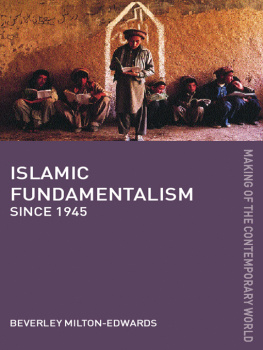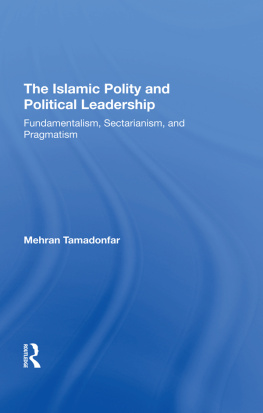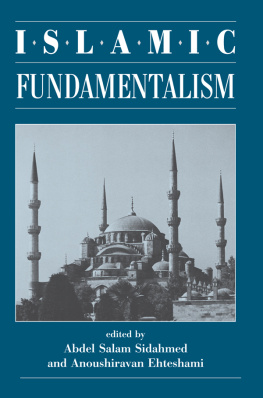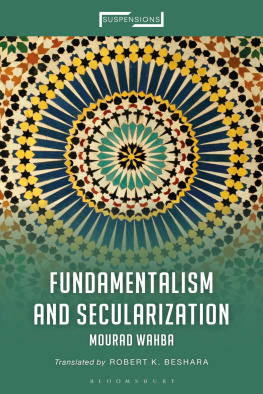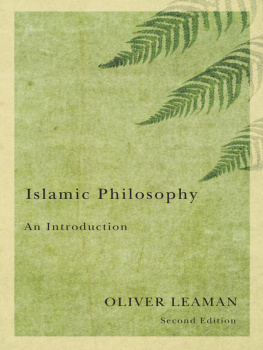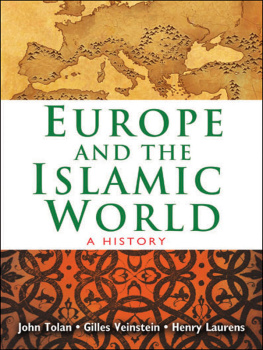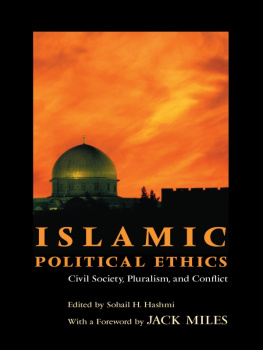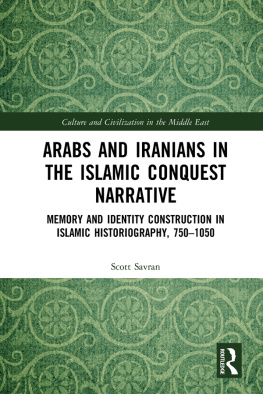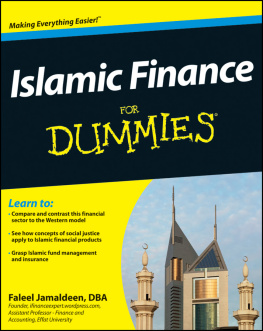Acknowledgements
In this book I have developed a number of ideas about Islamic fundamentalism as a contemporary historical phenomenon. To this end, a number of people have helped me throughout this project. The book, therefore, would not have been possible without their support, feedback and intervention. I would like to express gratitude to my editor Alex Ballantine for her enduring patience and encouragement during the writing of this book. Her gentle reminders served to motivate me when it mattered most. Dialogue with a number of people, including Amalendu Misra, Richard English, Mark Perry, Bobby Muller, Shlomo Avineri, Dominic Bryan and Alastair Crooke played a part in influencing, for better or worse, how this book was written. I would also like to express special appreciation to Christian Nilsson for his research assistance on this project. My final appreciation and deepest thanks remain for Graham, Cara and Joshua for their constant love and support.
While every effort has been made to trace and acknowledge ownership of copyright material used in this volume, the publishers will be glad to make suitable arrangements with any copyright holders whom it has not been possible to contact.
The views expressed in this book are those of the author and do not represent the views of any institution or other individual.
Beverley Milton-Edwards
Belfast, March 2004
The Making of the Contemporary World
Edited by Eric J. Evans and Ruth Henig
The Making of the Contemporary World series provides challenging interpretations
of contemporary issues and debates within strongly defined historical
frameworks. The range of the series is global, with each volume drawing
together material from a range of disciplines including economics, politics
and sociology. The books in this series present compact, indispensable
introductions for students studying the modern world.
China Under Communism
Alan Lawrence
The Cold War
David Painter
Communism and its Collapse
Stephen White
Conflict and Reconciliation in the
Contemporary World
David J. Whittaker
Conflicts in the Middle East since 1945
Second Edition
Beverley Milton-Edwards and
Peter Hinchcliffe
Decolonization Second Edition
Raymond Betts
Dividing and Uniting Germany
J. K. A. Thomaneck and Bill Niven
Globalization
Peter Wardley
The International Economy since 1945
Sidney Pollard
Islamic Fundamentalism since 1945
Beverley Milton-Edwards
Latin America Second Edition
John Ward
Pacific Asia
Yumei Zhang
The Soviet Union in World Politics
Geoffrey Roberts
States and Nationalism in Europe
since 1945
Malcolm Anderson
Terrorists and Terrorism in the
Contemporary World
David J. Whittaker
Thatcher and Thatcherism Second
Edition
Eric J. Evans
United Nations in the Contemporary
World
David J. Whittaker
The Uniting of Europe Second
Edition
Stanley Henig
US Foreign Policy since 1945
Alan Dobson and Steve Marsh
Women and Political Power in Europe
since 1945
Ruth Henig and Simon Henig
Introduction
In the first decade of the twenty-first century one significant issue that has featured in global politics, discourse and international relations is the phenomenon of Islamic fundamentalism and the characterisation of the phenomenon as militant and radical. Contemporary accounts of the phenomenon, however, often overlook and pay little attention to the political history of Islamic fundamentalism. Such accounts are concerned with the here and now threat that Islamic fundamentalism is understood as posing to particular conceptions of political and economic order. There is a concern to equip policy-makers with the ways and means to combat Islamic fundamentalists and their supporters. Much analysis simply contends that to look at the historical contexts in which this phenomenon is manifest is a diversion and irrelevance in terms of determining a response to the terrorism that the Islamic fundamentalists have wrought on modern Western societies. Yet contemporary history is important to an understanding of this very modern phenomenon. It is important because it alerts us to the changes and upheavals apparent in so many of the societies that Muslims inhabit and its should alert us to the powerful myths that leaders construct around these experiences as a way of mobilising for change; to break with the past and take control of the future. This book sets out to address this debate by examining a number of issues that account for and explain the present-day phenomenon of Islamic fundamentalism.
Rather than being geographically specific and focusing on the regional heartland of Islam the Middle East the focus of this book is the whole of the Muslim world, or rather those countries where the majority of the population are Muslim. Suffice to say that since the Second World War citizens in the majority of these countries have been subject to a range of forces: foreign rule and occupation, movements for independence, rising nationalism and secularism, growing Islamist movements, reform, revolution and repression.
The analytical perspective guiding the study centres on Islam as a political experience. This is not to say that the religious/spiritual dimension of Islam is ignored but instead it is to say that in this book I will concentrate on the political manifestation of Islam in the late twentieth century. Moreover, Islam for the purposes of this book is defined as a fundamentalist phenomenon. Although this implies a singular unitary entity, as the historical account that unfolds in these pages reveals the reality, is rich in diversity, context and response. Suffice to say, then, the term Islamic fundamentalism is employed loosely in this book in respect more generally of a variety of impulses, movements, ideas, thinkers and groups that are active across the globe. In one respect, the term is employed this way because there is in fact little agreement of what fundamentalism strictly constitutes. Scholars can agree to nothing more than the assertion that the term refers to family resemblances between a variety of monotheistic faiths and includes characteristics such as: religious idealism, cosmic struggle, demonising the opponent, reactionary thinking, and envy of modernist hegemony and the revolutionary overthrow of power. Moreover, fundamentalism is not gender-neutral but is represented as a specifically male business. Fundamentalism is also interchangeable with the term Islamism this underlines the political emphasis that is attached to expressions of Muslim religiosity in specific contexts.
A route to fundamentalism
The explanatory framework of this book, therefore, centres on a deeply contested concept as a tool of analysis. For fundamentalism in relation to Islam is subject to debate and controversy, in particular because of the way in which Islam has been objectified as fundamentalist by the West. Fundamentalism is understood as something that relates to the nucleus of modern faith systems. Fundamentalism is understood as exclusive to religion. It is signified in relation to faith and the process of signification is powerfully negative rather than positive.
Fundamentalism was identified as a key characteristic of late twentieth-century religious revivalism across the globe. Islamic fundamentalism was recognised alongside the manifestation of Hindu, Christian, and Jewish variations. In principle, fundamentalism, therefore, is equated with a rejection of modernity and its secular variant in both democratic and non-democratic societies. In reality, however, fundamentalism has been recognised as a central, if not the defining, feature of historic and contemporary Islamism. Moreover, as the Cold War ended and Communism was perceived as vanquished by the forces of modern democratic Capitalism, writers grew concerned that a new enemy had appeared on the horizon. That enemy took the guise of Islamic fundamentalism, a spectre is haunting Europe and the world in general: the spectre of Islamic fundamentalism. All the world powers have entered into a holy alliance to exorcise this spectre.

